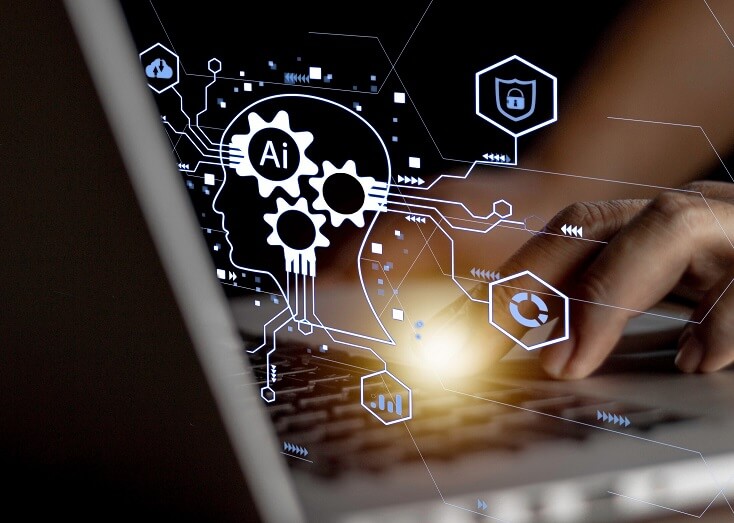Will Software Development Be Replaced by AI?
Will Software Development Be Replaced by AI?
In recent years, artificial intelligence (AI) has made remarkable advancements, transforming various industries and changing the way we live and work. From chatbots to autonomous vehicles, AI has demonstrated its potential to automate tasks and solve problems at an unprecedented speed and scale. This rapid progress raises an important question: Will software development, a field central to technological innovation, eventually be replaced by AI? While the idea is intriguing, the reality is far more nuanced.
Understanding the Role of AI in Software Development
AI has already made significant inroads into software development. Tools powered by AI, such as GitHub Copilot and OpenAI’s Codex, assist developers by generating code snippets, identifying bugs, and providing suggestions to improve efficiency. These AI tools can analyze vast amounts of data, learn patterns, and automate repetitive tasks, saving developers considerable time and effort.
However, it’s essential to note that these tools don’t work independently. They require human developers to guide, refine, and validate their outputs. AI acts as a collaborator rather than a replacement, augmenting human capabilities rather than rendering them obsolete.
The Current Impact of AI on Software Development
AI is influencing software development in several ways:
- Automating Repetitive Tasks : - AI can automate routine tasks like writing boilerplate code, conducting code reviews, and generating documentation. For instance, AI can identify errors or vulnerabilities in code and suggest fixes, speeding up the debugging process. This allows developers to focus on more complex and creative aspects of a project.
- Enhancing Efficiency : - With AI-driven tools, developers can write code faster and with fewer errors. Predictive analytics can anticipate potential issues, while machine learning algorithms can suggest optimized solutions. These advancements reduce development cycles and improve the overall quality of software.
- Enabling Low-Code and No-Code Platforms : - AI is at the heart of low-code and no-code platforms, enabling non-programmers to create functional applications using intuitive drag-and-drop interfaces. While these platforms democratize software development, they still rely on skilled developers to build and maintain the underlying frameworks and address complex requirements.
- Improving Testing and Deployment :- AI can streamline testing by automating test case generation and analyzing test results more efficiently than traditional methods. This ensures that applications are robust and meet quality standards before deployment.
Can AI Fully Replace Software Developers?
While AI’s role in software development is expanding, several factors suggest that it won’t fully replace human developers anytime soon:
- Creativity and Innovation : - Software development often requires creativity, problem-solving, and the ability to think outside the box. AI excels at tasks that involve pattern recognition and data analysis, but it lacks the ability to conceive original ideas or design innovative solutions. Human developers bring creativity and intuition that AI cannot replicate.
- Understanding User Needs :- Developers must deeply understand user requirements and translate them into functional software. This process involves empathy, communication, and collaboration with stakeholders—qualities that AI lacks. While AI can assist in gathering and analyzing user data, interpreting that data and making informed decisions still requires human judgment.
- Complex and Unique Challenges : - Every software project is unique, with its own set of challenges and constraints. AI may struggle to address unconventional problems or adapt to rapidly changing requirements. Human developers possess the flexibility and critical thinking needed to navigate these complexities.
- Ethical and Social Considerations : - Developing software often involves ethical and societal considerations, such as data privacy, user safety, and accessibility. These aspects require human oversight to ensure that software aligns with moral values and legal standards. AI lacks the moral reasoning and contextual understanding necessary to address such concerns.
- AI’s Dependency on Humans : - AI tools themselves are created and maintained by software developers. These systems require regular updates, training, and debugging to remain effective. Far from eliminating the need for developers, AI creates new opportunities for skilled professionals to build and refine intelligent systems.
The Future: A Collaborative Approach
Rather than replacing developers, AI is likely to redefine the role of software developers. The relationship between humans and AI can be seen as collaborative, where each complements the other’s strengths. Here’s how this partnership might evolve:
- Developers as Supervisors : - In the future, developers may act more as supervisors and architects, guiding AI systems to perform specific tasks while ensuring that the outputs meet quality standards. This shift could reduce manual coding and emphasize higher-level problem-solving and design.
- Focus on Strategic Goals : - With AI handling routine tasks, developers will have more time to focus on strategic objectives, such as optimizing software performance, exploring emerging technologies, and improving user experiences.
- Continuous Learning : - As AI tools evolve, developers will need to adapt by learning new skills, such as training machine learning models and integrating AI-powered tools into their workflows. Lifelong learning will become a core aspect of the profession.
- New Opportunities : - AI’s growth will create new opportunities in areas like AI ethics, data engineering, and machine learning operations (MLOps). Developers with expertise in these fields will be in high demand, shaping the future of technology.
Challenges and Risks of AI in Software Development
While AI offers numerous benefits, it also poses challenges:
- Bias in AI : - AI systems can inherit biases from their training data, leading to unfair or discriminatory outcomes. Developers must ensure that AI-driven tools are unbiased and transparent.
- Overreliance on AI : - Relying too heavily on AI could lead to complacency, with developers neglecting foundational skills. Striking a balance between automation and manual expertise is essential.
- Job Displacement Concerns : - AI may automate certain tasks, raising concerns about job displacement. However, history has shown that technological advancements often create new roles and industries, offsetting job losses in the long run.





